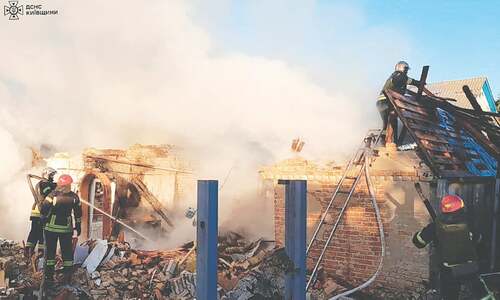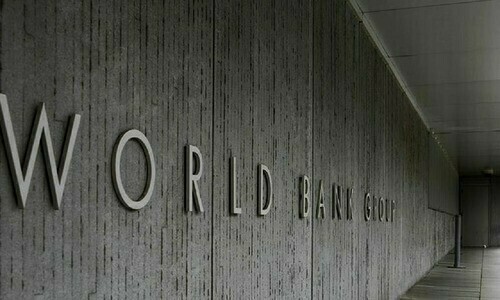SEOUL: North Korean leader Kim Jong Un’s powerful sister said on Monday that Japanese Prime Minister Fumio Kishida has requested a summit with her brother, adding a meeting was unlikely without a policy shift by Tokyo.
Relations between the two countries are historically strained, including by a long-running kidnapping dispute and North Korea’s banned weapons programmes, but Kishida has recently expressed a desire to improve ties, which Pyongyang has hinted it is not opposed to.
Last year, Kishida said he was willing to meet Kim “without any conditions”, saying Tokyo was willing to resolve all issues, including the abduction by North Korean agents of Japanese citizens in the 1970s and 1980s, which remains an emotive issue in Japan.
“Kishida... conveyed his intention to personally meet the President of the State Affairs of the Democratic People’s Republic of Korea as soon as possible,” Kim Yo Jong said in a statement carried by the official Korean Central News Agency.
Alleged abductions of Japanese citizens by North Korea remain a contentious issue between the two countries
Kim Yo Jong — who is one of the regime’s key spokespeople — had hinted last month at a possible future invitation for the Japanese leader to visit North Korea. But she said the “history of the DPRK-Japan relations gives a lesson that it is impossible to improve the bilateral relations full of distrust and misunderstanding,” without a substantive policy change on Tokyo’s part.
She warned that were Japan to remain “engrossed in the abduction issue that has no further settlement” then Kishida’s hopes of improving ties would not materialise.
Kishida said that he was not aware of the KCNA report, and did not directly comment on its contents, while calling top-level talks with North Korea “important”.
“For Japan-North Korea relations, top-level talks are important to resolve issues such as the abduction issue,” Kishida said in parliament, referring to kidnappings that took place in the 1970s and ‘80s.
“This is why we have been making various approaches to North Korea at the level directly under my control, as I have said in the past.”
Kidnapping issue
North Korea admitted in 2002 that it had sent agents to kidnap 13 Japanese people in the 1970s and ‘80s who were used to train spies in Japanese language and customs.
The abductions remain a potent and emotional issue in Japan and suspicions persist that many more were abducted than have been officially recognised. Sakie Yokota, 88, whose daughter Megumi is among the missing abductees, told Japanese media on Monday that she wanted the two countries to hold talks “as soon as possible”.
“I don’t know if talks will take place, because it’s North Korea, but I hope even a small step will be made. We really don’t have much time left,” she said.
Earlier this month, Atsuhito Isozaki, a North Korea expert and professor at Keio University, told reporters it would be “extremely hard” for Japan to accept the North’s claim that the abduction issue is resolved.
Published in Dawn, March 26th, 2024













































Dear visitor, the comments section is undergoing an overhaul and will return soon.